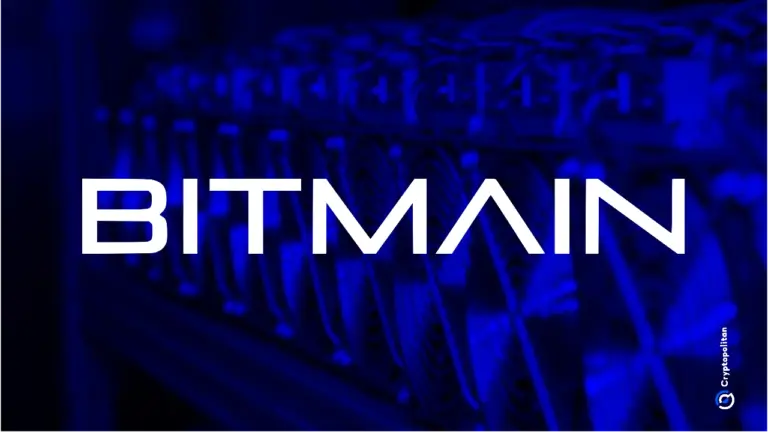NVIDIA’s Earnings Highlight the Cost of the China-US Tech Standoff
- NVIDIA’s Q2 revenue hit $46.7B, exceeding estimates but showing slower growth amid AI market stabilization. - Data center revenue ($41.1B) fell slightly short of forecasts, while gaming revenue ($4.3B) outperformed expectations. - U.S.-China trade tensions reduced China-related revenue and imposed a 15% U.S. government revenue-sharing agreement. - Gross margins are projected to decline to 72.1% in Q2, with further dips expected due to the new revenue-sharing terms. - Despite challenges, NVIDIA announced
NVIDIA reported second-quarter revenue of $46.7 billion, exceeding the estimated $46.23 billion, driven by robust demand across its data center and gaming segments. The company’s results reflect a moderated growth trajectory following the sharp expansion seen at the onset of the AI-driven boom. Analysts had expected a 53.2% year-on-year increase in revenue, and NVIDIA’s performance largely aligns with these forecasts. This growth, however, is a significant slowdown from the triple-digit increases previously recorded by the company [3].
The data center segment, NVIDIA’s largest revenue contributor, generated $41.1 billion in the second quarter, slightly below the $41.2 billion expected by analysts. This segment has been a key driver of the company’s success as major tech firms, including Meta and Microsoft , continue to expand their AI infrastructure. However, revenue from China, particularly from the H20 chips, was excluded from this figure due to regulatory constraints. Analysts had initially anticipated a $8 billion impact from U.S. export restrictions in the July quarter, which were later modified to include a 15% revenue-sharing agreement with the federal government [1].
The company’s gaming segment also outperformed expectations, contributing $4.3 billion to the second-quarter revenue. This result underscores continued demand for NVIDIA’s gaming-related products despite broader macroeconomic headwinds. The overall revenue growth, while positive, indicates a cooling in the pace of expansion compared to earlier in the year. Analysts attribute this to the broader stabilization of the AI market and the ongoing uncertainties surrounding the U.S.-China trade dynamics [3].
NVIDIA’s financial results also highlight the potential challenges it faces in maintaining profitability due to its China operations. The 15% revenue-sharing arrangement with the U.S. government is expected to weigh on gross margins, with Bernstein analysts estimating a one-point reduction in overall margins. For the second quarter, the company’s adjusted gross margin is projected to decline by nearly 4 percentage points to 72.1%. Looking ahead, the October quarter is expected to see a further marginal decline in gross margins to 73.2% [1].
Despite these challenges, NVIDIA’s stock remains a strong performer, having gained more than a third in 2025. The company also announced an additional $60 billion in stock buybacks, signaling confidence in its long-term financial health. Analysts expect the company to guide to $54 billion in third-quarter revenue, with estimates suggesting that a portion of this growth could come from China, albeit under the terms of the new U.S. arrangement [3].
The geopolitical landscape continues to influence NVIDIA’s business strategy, with the Trump administration playing a pivotal role in shaping the company’s access to the Chinese market. While the administration revoked its initial ban on the sale of NVIDIA’s chips to China, it imposed a 15% revenue-sharing agreement. This development has created uncertainty among investors, who are now closely watching how this arrangement will impact the company’s long-term growth and profitability [1].
Source:

Disclaimer: The content of this article solely reflects the author's opinion and does not represent the platform in any capacity. This article is not intended to serve as a reference for making investment decisions.
You may also like
Goldman and T. Rowe sign $1 billion partnership as Wall Street targets retirement cash
Share link:In this post: Goldman Sachs is buying a $1 billion, 3.5% stake in T. Rowe Price to push private assets into retirement accounts. The partnership will launch target-date funds, co-branded portfolios, and advice services by mid-2025. Citigroup also announced a deal giving BlackRock $80 billion in client assets to manage starting in Q4.

Fed chair contender Hassett slams central bank for mission creep and fading independence
Share link:In this post: Kevin Hassett accused the Fed of losing independence and overstepping its mandate. He slammed the job data system as broken and called for urgent modernization. Kevin backed a full review of the Fed’s roles in policy, regulation, and research.

Bitmain is hit with a lawsuit alleging breach of hosting agreement
Share link:In this post: Old Const says Bitmain faked breaches to end their deal and seize mining equipment. The company wants a court order stating that disputes must stay in Texas based on the agreement. Old Const is seeking an injunction, damages, and legal fees from Bitmain.

El Salvador joins the gold rush and acquires 13,999 troy ounces
Share link:In this post: El Salvador’s central bank bought 13,999 troy ounces of gold worth $50 million. The bank says gold will diversify reserves and provide stability, especially as Bitcoin holdings remain volatile. The move follows the global trend of central banks buying over 1,000 tonnes of gold collectively.
